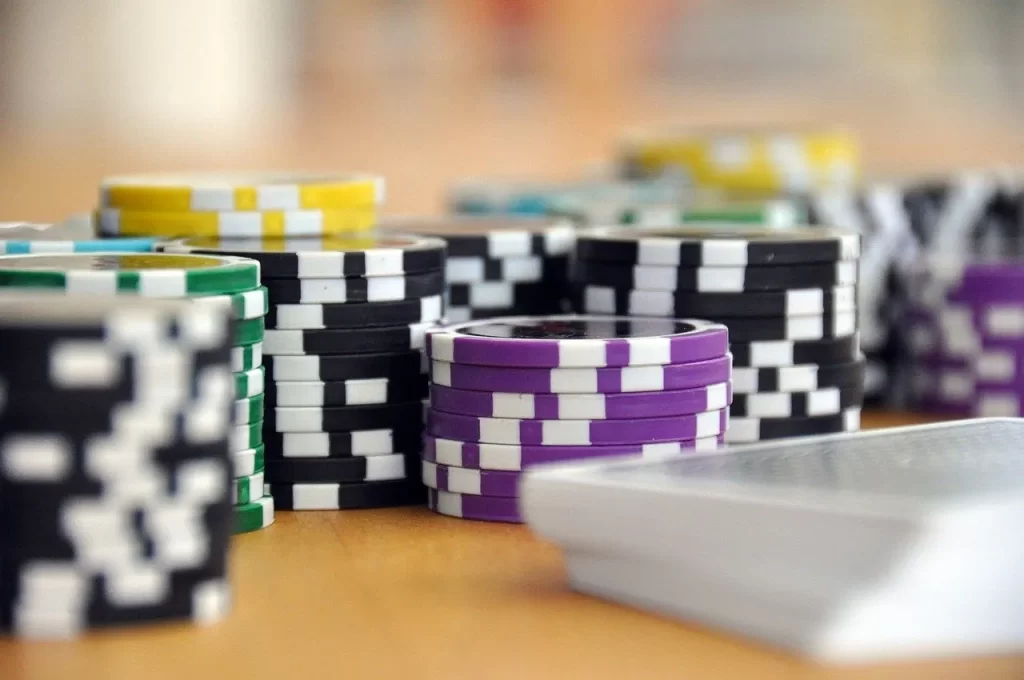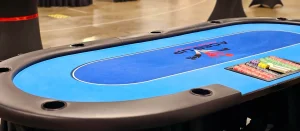Psychology in Poker – Understanding Player Behavior and Using it to Your Advantage
3 min read
Psychology in poker is an important part of the game. It involves controlling emotions and using mind games to gain an advantage over opponents. It also requires patience and self-control. In addition, it is necessary to know how to read tells.
The first step in understanding player psychology is observing their behavior and analyzing it. This includes paying attention to betting patterns and observing their body language. It is also important to know how to identify tells and read their emotions.
Game of chance
In poker, a game of chance and strategy merge to create an intriguing mixture of deception and observation. Understanding player psychology can help you make better decisions at the table and exploit your opponents’ weaknesses. In addition, it is essential to practice self-control in order to avoid revenge tilt and other emotional traps that can ruin your game.
Developing a keen sense of recognizing your opponents’ predictable tendencies can significantly boost your poker game. For example, if an opponent often over-bets weak hands, you can take advantage of this tendency by calling or raising aggressively to capitalize on their weakness. Moreover, you can identify tells by observing their body language, including changes in facial expressions or their breathing patterns. Additionally, a player’s verbal cues can reveal their hand strength. For instance, a hesitant response or a long pause may indicate uncertainty or a weak hand. Decoding these signals requires a keen eye and a solid grasp of poker psychology.
Game of skill
Poker isn’t merely a game of chance and luck, it’s a game of skill as well. A study published in the Journal of Gambling Studies analyzed 300 players and found that expert players made more money than non-experts, despite being dealt a similar amount of good hands. The secret to their success is a combination of strategic play and psychological manipulation.
One of the most important aspects of poker psychology is controlling emotions. A professional player needs to be able to separate disappointing outcomes from the overall gameplay. He must also be able to stay focused and maintain discipline in high-pressure situations.
Another important aspect is observing your opponents’ tells. These subtle cues can reveal information about the strength of an opponent’s hand. They can be as simple as a twitch, glancing or the size of a bet. Deciphering these clues takes a keen eye and a strong understanding of human behavior. A well-trained poker player can detect these hints even from across the table.
Game of psychology
Poker psychology is a critical component of the game and can be used to your advantage. It involves understanding how your opponents think and their emotional state, as well as learning to recognize tells. It is also important to understand the role luck plays in poker. Having the ability to control your emotions and avoid impulsive decisions is essential to success.
Another important element of poker psychology is recognizing the signs of tilt. This mental and emotional state is triggered by bad luck or losses and causes players to make irrational decisions. It is important to recognize when your opponent is tilting and exploit it.
In addition to being able to read your opponents’ expressions and body language, it is also important to study their betting habits. This will help you determine the strength of their hands and whether they are bluffing. Tells include fidgeting, glancing at other players, twitchy fingers, gulps and inadvertent grins.
Game of bluffing
In addition to understanding odds and calculating probabilities, poker players must understand the psychology of their opponents. Bluffing is a critical part of the game and it can be used to your advantage in many ways.
A successful bluff can plant a seed of doubt in your opponent’s mind, making them less likely to call your future bluffs. It can also help you manipulate your opponents’ feelings and emotions. However, it’s important to remember that your bluff will fail if your opponent senses that you have a strong hand.
To avoid this, you should study your opponent’s body language and facial expressions. Pay attention to subtle twitches or microexpressions and look for signs of anxiety such as fidgeting or restlessness. You should also pay attention to the size of your opponent’s bets. This can tell you a lot about their confidence and strength of their hand.






